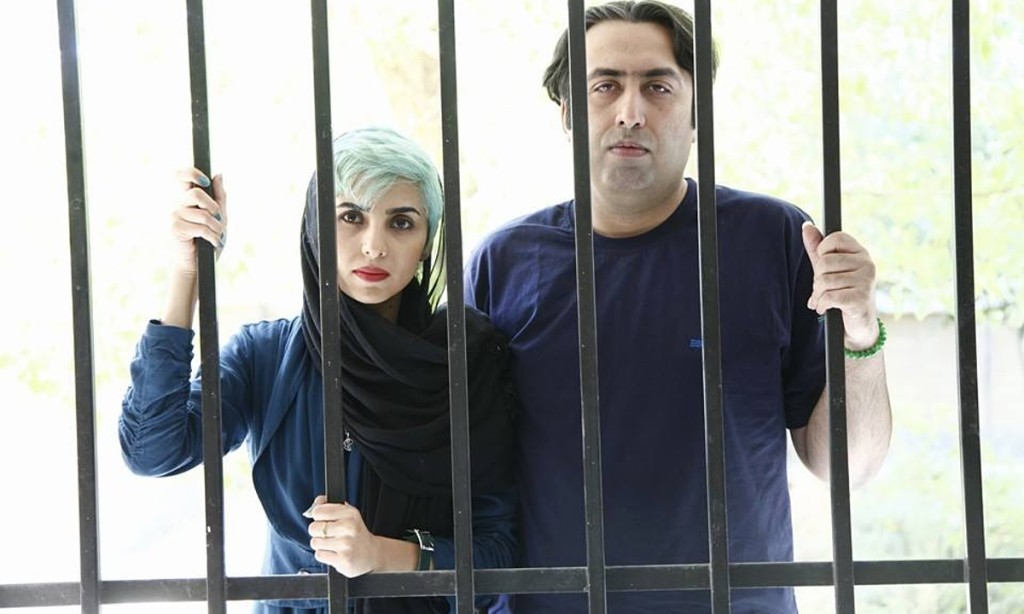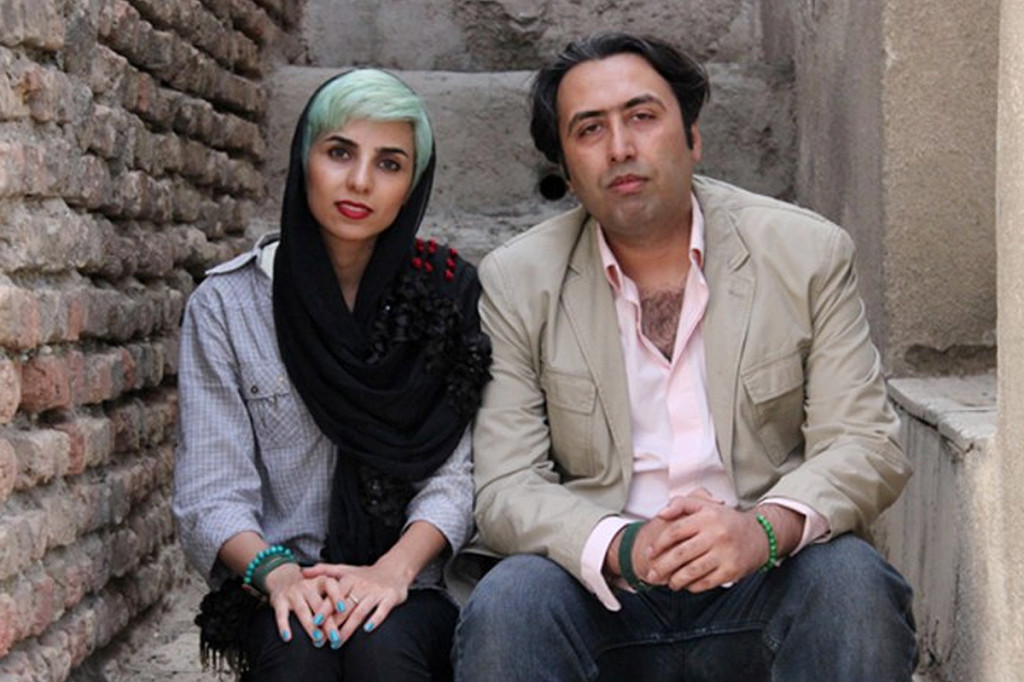Iranian poets Fatemeh Ekhtesari and Mehdi Mousavi have escaped the Islamic Republic as global powers lifted sanctions on the country and exchanged prisoners with the United States on Monday. The two poets were sentenced to 20 combined years in prison as well as 99 lashings each in October 2015, with charges ranging from propaganda against the state to indecent sexual conduct, given to the poets for shaking hands with “strangers” (the official designation for non-family members of the opposite sex.)

Ekhtesari and Mousavi were sentenced to a combined 20 years and 198 lashings on charges of “indecency” and “propaganda against the state” (The Guardian.)
Ekhtesari told the Associated Press on Monday that both she and Mousavi are currently in another country, but cannot disclose their location due to concerns for their security. The two poets were likely targeted because their work is well-known outside of Iran. Both are self-described “postmodern Ghazal” poets who seek to revive the traditional Persian love sonnet by applying it to contemporary political and social issues.
While these and other artists’ release constitutes a victory for free expression in the theocracy, many other activist-artists and prisoners of conscience remain imprisoned.
“These sentences show that repression in Iran is intensifying,” said Hadi Ghaemi, executive director of the International Campaign for Human Rights in Iran upon the poets’ original imprisonment. “Hardliners aren’t just going after political activists, they are determined to stamp out any social or cultural expression with which they disagree.”

The two poets, both also trained doctors, have declined to reveal their current location over concerns for their safety, but have left Iran (International Campaign for Human Rights in Iran.)
The conflict between artists and government censors has often been made into a political issue, with reform-minded moderate politicians clashing with the country’s conservative Supreme Leader and his supporters. Activists, artists, and other prisoners of conscience unfortunately often serve as pawns in the country’s political games.
It should come as no surprise that relations with the west are a major point of contention in these debates. Hardliners in Iran’s government consider any rapprochement with the West to be a sign of the Islamic Republic’s weakening influence and moral decay. As many of these artists are celebrated by the Persian diaspora, their freedom itself can be seen as a concession to the west.
On January 18, U.S. Secretary of State John Kerry described the conflict between moderates and hardliners in the country:
“It is a tension between those who want to play the Revolutionary card… and those who believe that Iran will be better off rejoining the world and engaging in commerce and doing better by their people,” Kerry said, adding, “Iran has an opportunity here… Whether it will happen or not, I can’t tell you.”
For advocates of free expression, Ekhtesari and Mousavi’s release serves as both a point of celebration and a sign of hope for the numerous artists who remain imprisoned in Iran. The Voice Project will continue to advocate for the freedom of the multiple artists still held as prisoners in Iran.
